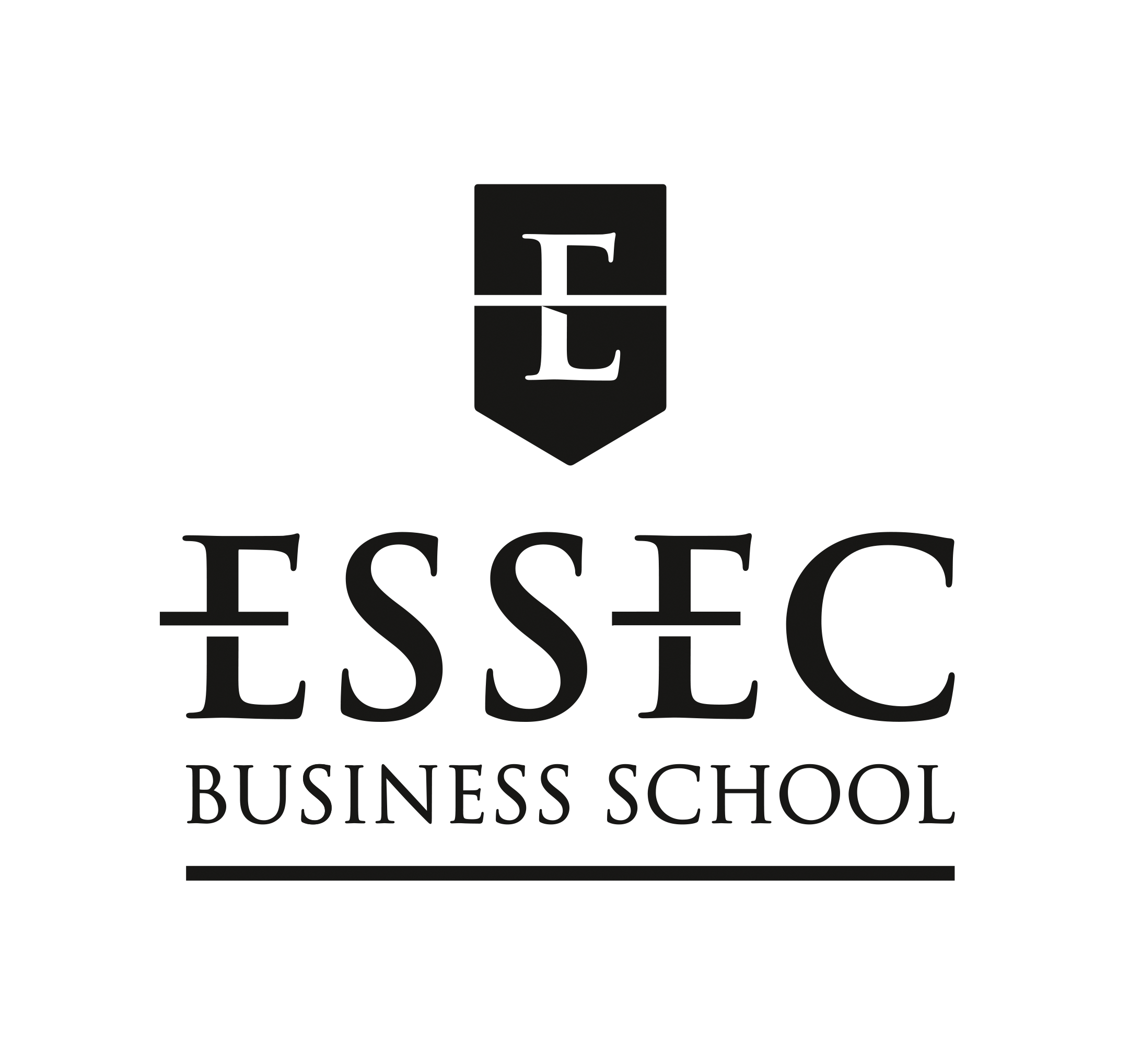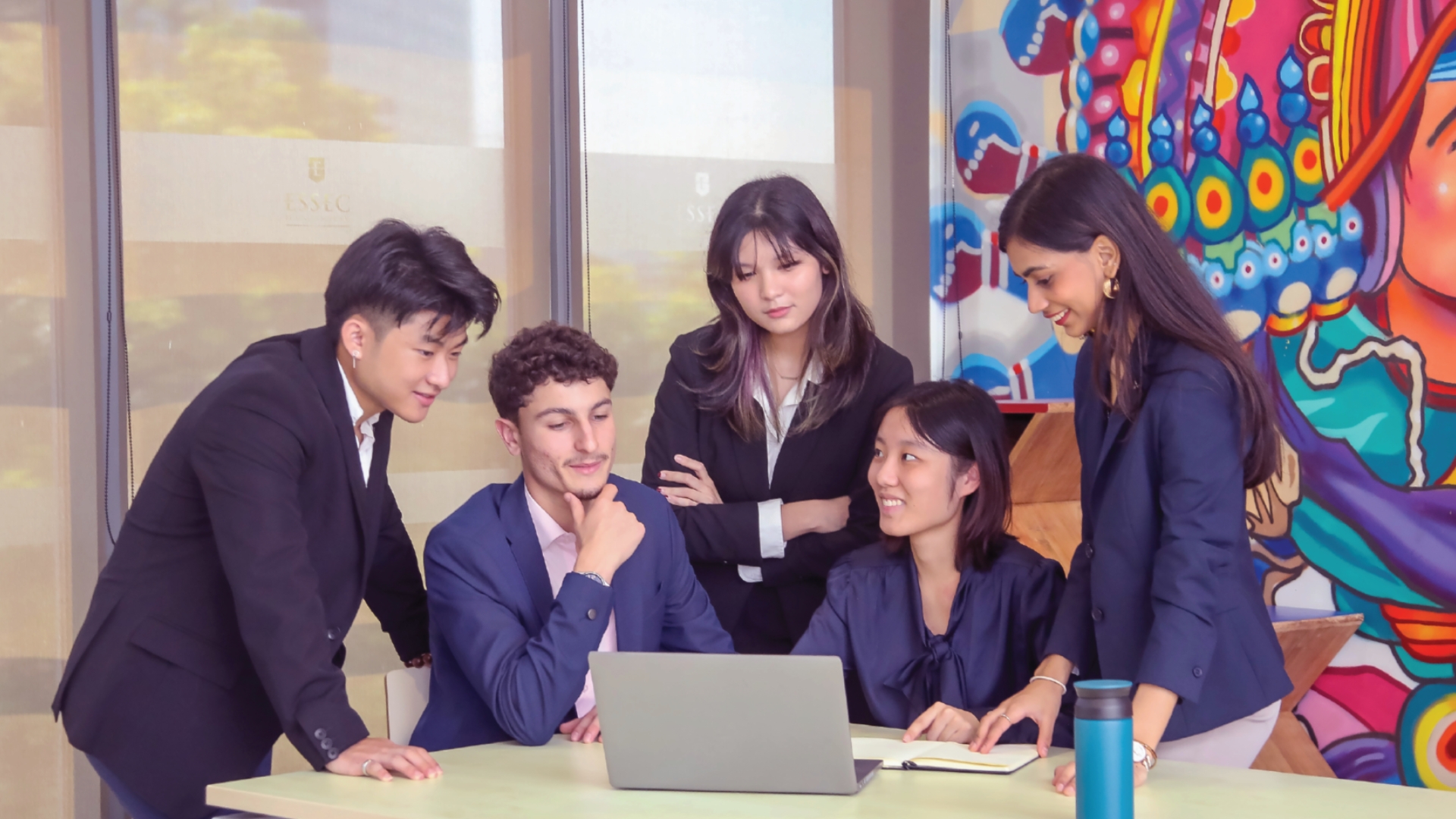- Students from China choose the Master in Management program for its ability to help them become a jack of all trades and masters of some.
- Asia-Pacific campus is well-located in an area with vibrant opportunities.
- Diversity and opportunities for professional experiences build adaptability for the future.
The idiom, to be “jack of all trades and master of none,” often conjures up negative connotations. For years, conventional advice has been to specialize and become an expert in one’s field of choice.
Yet, with increasing digitalization, interconnectedness, and the overall uncertainties that a post-pandemic world has brought, it has become increasingly apparent that specializing is insufficient to thrive. Instead, one needs to be adaptable, with soft skills like creativity and teamwork that can transfer across industries and roles.
This knowledge partly drew Yuchen Wu to the ESSEC Master in Management (MiM) program.
While completing his bachelor’s degree from the University of Wisconsin-Madison, where he did a double major in finance and economics, Yuchen, who is from China, interned in a consulting role for both Boston Consulting Group and Audi China.
“I saw that even the most established of companies faced challenges in efficiency and that it was crucial to be able to identify and overcome obstacles in the way,” he shares. The realization led him to understand that success as a consultant would require diverse skill sets—something he did not feel he had with his current educational qualifications.
A Versatile Program to Build Business Acumen
The MiM appealed because of the flexibility it offered Yuchen to customize his learning journey.
“From the diverse variety of tracks and chairs to the multiple destinations for exchange programs, the MiM program offers us all sorts of options that allow us to design our experience to fit our own goals and interests,” he says, adding that he felt this would enable him to explore different facets of the business world and develop the versatile skill set needed for his future.
Yuzhe Zhu, who also comes from China, shares these sentiments. Majoring in French language and literature in her undergraduate days, she saw the broad MiM curriculum as an ideal way to develop her business acumen and bridge the gap for her to move into a global marketing role.
For both, starting at the Singapore campus was a given because of the country’s proximity to emerging Asian markets and its reputation as one of the top choices for global companies looking to break into the region.
Opportunities to Gain Professional Experience
A major highlight for both was the MiM program’s emphasis on gaining industry exposure. Students have up to four years to complete their degree. During this time, they must accumulate at least 12 months of work experience through internships, apprenticeships, or even by starting their own company.
In addition, ESSEC’s signature learning by doing pedagogy permeates all their classes—for example, Yuzhe shares that in a marketing class she took, she was tasked to work on a project for Better Coffee Company, one of Singapore’s first b-corporations.
Students at the ESSEC Asia-Pacific campus also have a chance to take the Junior Consultant Experience (JCE). The program is broken into three phases: consulting for a commercial business, consulting for an NGO, and finally, an entrepreneurial project—all contributing contributorsstudentsing the agility to strategizeblem problem-solving industries.
“By studying, visiting, and communicating with these companies, I’ve understood how they solve specific problems. I’ve found these real cases are more interesting and easier to understand than theories alone,” Yuzhe says.
A Training Ground for the Global Workplace
She adds that the cohort’s diversity has also been a benefit, as it has allowed her to understand how people from different cultures operate.
“This is the biggest difference between ESSEC and my past schools. At ESSEC, I’ve learned more about various European and Asian cultures, which has broadened my horizons and shaped the way I think,” she shares, adding: “I recommend other MiM students do their best to communicate and network with people from different countries.”
This, she elaborates, is another reason why being part of the MiM program is a privilege: It affords students the unique opportunity to develop friendships and connections to last a lifetime and the intercultural skills needed to thrive in the globalized world.
RELATED POSTS
Students from Southeast Asia on Dean’s List
Three Southeast Asian Global Bachelor of Business Administration (BBA) students—Éloïse Le, Janice Augustine, and Olivia Gunawan—achieved Dean's List…
What ESSEC SMIB Students Learned from Vietnam’s Top Companies in Just 5 Days
ESSEC Master in Strategy & Management of International Business (SMIB) students spent five impactful days in Ho Chi Minh City, gaining real-world…
Bridging Tomorrow: ESSEC-CentraleSupélec’s Revolutionary AI and Management Bachelor
Innovative program combines elite business education with cutting-edge engineering at Europe's prestigious institutions.
Specialized Prestigious Tracks: Elevating Global Business Excellence at ESSEC
ESSEC's Global BBA offers elite international tracks that transform students through immersive cross-continental learning experiences, prestigious…
The Asian Strategy Challenge: Real-World Consulting Experience
ESSEC's Asian Strategy Challenge transforms SMIB students into strategic consultants through intensive, real-world business problem-solving with…
Global Exposure: The Impact of Study Trips on SMIB Students
SMIB study trips to Bangkok, Dubai, and other global business centers provide transformative international exposure, developing cross-cultural…








